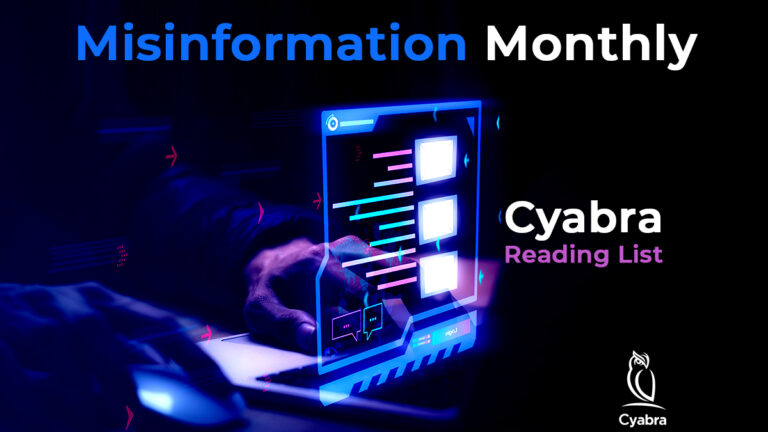The rise and rapid spread of the internet has seamlessly connected the digital and the physical world. The near-instant flow of information has tremendously helped humanity and changed the world forever.
However, this connectivity also presents vulnerabilities, as it creates opportunities for individuals to exploit these interconnected systems to spread harmful content quicker than ever before.

About Threat Actors
Threat actors, also known as malicious actors or bad actors, are individuals or groups whose intention is to cause harm through means of disinformation.
They can range from online troll individuals who are looking to damage a reputation of a company or a product they personally don’t like, to organized crime groups, all the way up to state-sponsored bad actors.
The motivations behind their attacks can vary widely, including financial gain, political agendas, espionage, or in the case of online trolls, simply causing disruption for their own amusement.
Previously, companies and brands were not common targets of disinformation campaigns, but now, they frequently find themselves at the center of these malicious attacks.
This shift is partly due to the increasing number of bad actors who use advanced technologies such as bot networks and genAI, making them more difficult to detect.
These bad actors often target the private sector, causing massive reputational and financial damage. Moreover, they contribute to increased divisiveness by amplifying emotions such as fear, confusion and anger.
Even though these malicious groups are working overtime to corrupt modern society, there are still ways to combat their ever growing threats and stay protected from these vicious attacks.
Let’s take a look at the four types of threat actors and how to keep safe from them.
Criminals
Criminals in the online space are primarily motivated by financial gain. Their goal is to exploit sensitive information from brands and businesses, often using bots as their tool of choice.
With the rise of GenAI, bots on social media are more advanced than ever, and they are able to replicate the writing style of humans in an extraordinarily accurate way.
One of the ways bots can be used is to artificially inflate stock prices. These bots, disguised as genuine profiles, push narratives that encourage buying shares during price drops, misrepresenting them as lucrative investment opportunities.
A study found that a significant fraction of discussions using targeted keywords stemmed from these deceptive accounts, which managed to reach thousands and potentially sway investor decisions.
The scam accounts may also enhance their posts with manipulated engagement metrics to give an impression of credibility, further misleading businesses and investors about the true sentiment or popularity of certain market trends or stocks.
Another commonly used method criminals use is called “phishing”. It consists of criminals creating a fake web page or a social media link designed to mimic something the victim is familiar with, only for their target to input sensitive information, allowing malicious actors to extort them using valuable information they’ve acquired.
Phishing tactics on social media involve the creation of fake accounts that impersonate well-known brands or public figures. These accounts mirror the appearance of legitimate profiles, using similar logos and usernames to seem authentic.
Protection strategies:
To protect your business or brand from stock market manipulation, it’s crucial to implement tools that can monitor social media for unusual activity patterns.
Promoting a culture of awareness within your organization can significantly reduce the risk of falling victim to these sophisticated scams.

Ideological Threat Actors
Ideological hackers, also known as hacktivists, are threat actors who use social media to challenge and disrupt entities they ideologically oppose, such as multinational corporations and government agencies.
These hacktivists can significantly impact companies and brands by damaging their public image and customer trust through targeted disinformation.
As a result of their activities, the entities they target can suffer great financial losses, as the negative publicity generated by such campaigns can deter potential customers and investors.
Their campaigns are primarily motivated by the desire to expose perceived injustices or unethical practices, rather than pure financial gain.
Protection strategies: Establishing a comprehensive bad actor detection system goes a long way in dealing with this type of threat actors.
Furthermore, educating employees about the nature of ideological attacks as well as recognizing and responsibly handling suspicious content is a vital strategy in reducing the risk posed by these threats.
State-sponsored Actors
State-sponsored actors on social media aim to influence and manipulate public perception to serve national interests.
As the name suggests, they are either orchestrated in full by governments or receive significant funding and technical assistance from a nation-state.
Their activities often involve spreading false information, creating or exacerbating social divisions, and subtly influencing political events such as elections.
Another crucial thing to mention is that in some cases, these actors may also target private companies, aiming to damage a country’s economy as part of a broader strategic goal.
State-sponsored actors can reach large audiences quickly through social media platforms using tactics that range from spreading rumors to orchestrating coordinated fake news campaigns.
Protection strategies: Considering the fact that these groups’ funds are near unlimited, combating their attacks becomes an increasingly difficult task.
It’s important to keep a close eye on conversations around topics like elections and political leaders to recognize when these attacks might occur.
By tracking how these discussions evolve, spotting fake accounts and pinpointing the misleading narratives they’re pushing, your company can reduce the impact of such campaigns.
Trolls
Thrill seekers, commonly known as trolls, cause chaos for their own amusement. In some cases, they don’t even have malicious intent, but are instead just trying to “one-up” their target by causing the most harm possible.
The most common way for trolls to cause damage is by coordinating and spreading disinformation and conspiracy theories about topics and brands they ideologically disagree with – possibly an even more powerful tool than hacking.
A frequent victim of thrill seeker attacks are companies, as they are “easy” targets to spread fake narratives against. It’s an effective method for these malicious actors as proven by many conspiracies and fake news stories that have circulated around the web in the past few years.
They typically do this through fake profiles, and their goal is to create mass hysteria and confusion, as well as to undermine trust in media outlets and the government.
One of the most significant examples of this is disinformation about the COVID-19 pandemic which included a plethora of conspiracy theories that spread like wildfire all over social media and had dire consequences on the public.
Protection strategies:
The most powerful protection strategy against trolls is for businesses to enhance their monitoring of social media to swiftly identify and counteract bot networks and influence operations, effectively safeguarding public discourse from disruptive disinformation campaigns.
If you’re interested in learning more about protecting yourself against threat actors, you can contact Cyabra.


